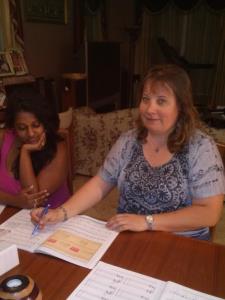
Jenny M.
asked • 10/29/19Fahrenheit 451 Question
Education
“Remember, the firemen are rarely necessary. The public itself stopped reading of its own accord” (p. 87). What kind of education is necessary to create citizens who recognize “quality of information,” take
“leisure to digest it,” and “carry out actions based on what we learn from the first two?” (p. 84) How
might this relate to our current educational system??
Have 3 quotes as evidence
1 Expert Answer

Ilona M. answered • 10/30/19
MA in Teaching English to Speakers of Other Languages
Quality of education relates to 2 different problems: in tofay's society it is hard to figure out reliable sources for any topic to do not get rapped by fake news, and the 2nd is many highschools do not care what their students learn as long as they graduate, and junior colleges have to deal with their lack of knowledge.
It has been provem that less and less people read on daily basis relying only news created by the media, many students do not read, and so their vocabulary level is very low, this starts in the middle school. The answer to you last question "What kind of education is necessary to create citizens who recognize “quality of information,” take“leisure to digest it,” and “carry out actions based on what we learn from the first two?” is that our politicians such as state governors should rexamine each state's education problem and put more founds to fix it, not spending millions of dollars on TV commercials.
Still looking for help? Get the right answer, fast.
Get a free answer to a quick problem.
Most questions answered within 4 hours.
OR
Choose an expert and meet online. No packages or subscriptions, pay only for the time you need.





Connie Y.
11/01/19